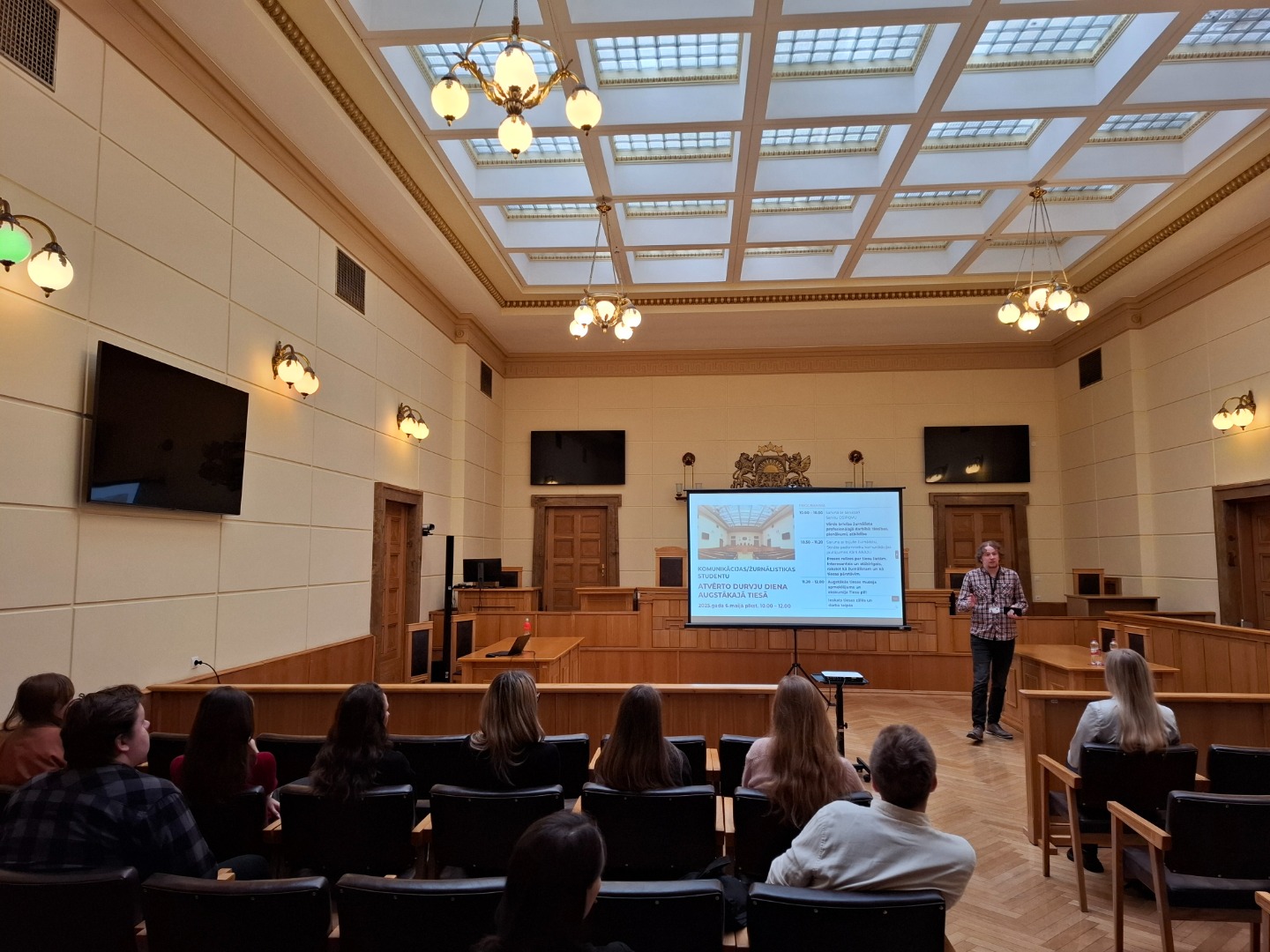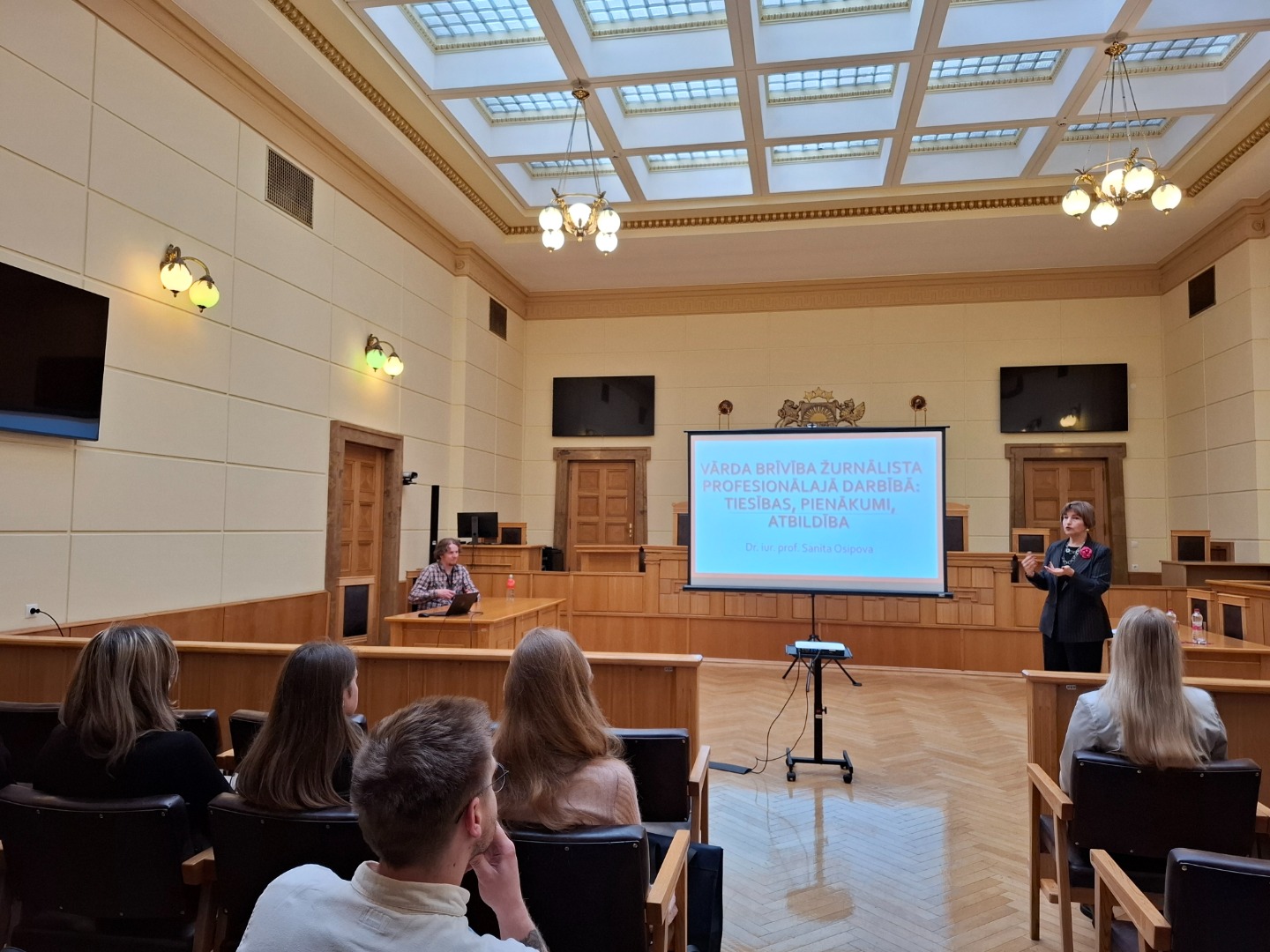6 May, 2025
The Supreme Court appreciates the importance of effective communication and the work of journalists in informing the public, which is why it invited future journalists and communication specialists to the Open Day on 6 May.
In a conversation with students, Sanita Osipova, Senator of the Senate's Department of Civil Cases, explained the concept of a state, emphasizing that the state is the people who create it. The existence of the state is necessary to guarantee peace, security and justice. The main goal of a democratic and lawful state is to protect human dignity. Therefore, the state has a duty to respect human freedom and ensure equality.
Furthermore, the Senator described the concept of freedom of speech enshrined in Article 100 of the Constitution of Latvia, which is in fact freedom of expression and freedom of opinion. Any signals we send to society through speech, emotions or artistic means of expression are the freedom of speech referred to in the Constitution. “Freedom of speech is about any form of expression. Freedom of speech is not given to one person, but to everyone – it is exercised through responsible communication,” said Sanita Osipova.
The Senator also pointed to cases where people have addressed court because they felt that a journalist's statements had violated their honour and dignity. In such cases, the court assesses whether the published information is data and facts that can be verified, or whether it is an opinion based on the analysis of the facts gathered by a journalist.
Senate’s communication adviser Kārlis Arājs, who previously worked as a legal journalist for the LETA news agency and was news editor for the Delfi news portal, shared his experience with students of attending court hearings and writing about court cases. He compared journalists to interpreters, whose task is to make complex legal information understandable to the wider public. “The information provided by the courts always contains findings that are important to the public – the main thing is to present them in an understandable and interesting way,” Kārlis Arājs emphasized. Speaking about the difference between the work of a journalist and that of an advisor, he acknowledged that journalists can afford to use language in a freer manner and to include more vivid expressions, while as a representative of the court, he must be much more cautious and neutral in his statements.
At the conclusion of the Open Day, students visited the Supreme Court Museum, toured the historic Palace of Justice and looked into the courtrooms.
Baiba Kataja, Communication Specialist of the Supreme Court
Telephone: +371 67020396; e-mail: baiba.kataja@at.gov.lv



